Speaker Bios

In her role as a Program Director, Dr. Doose advances research on long-term cancer survivorship, primary care capacity for cancer survivorship care, and health system and community level interventions. Her scientific interests include effective communication and coordination to optimize patient-care team relationships for cancer survivors, especially those with multiple chronic conditions. Dr. Doose also serves as a Project Scientist in Cancer Care Delivery Research for the NCI Community Oncology Research Program (NCORP). Dr. Doose earned a PhD from Rutgers School of Public Health, a Master of Public Health in Community Health Sciences from UCLA Fielding School of Public Health, and bachelor's degrees in Spanish and International Studies with an emphasis in Latin America studies from Pepperdine University.
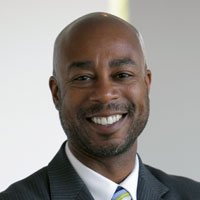
As Deputy Director of the Division of Cancer Control and Population Sciences (DCCPS) at the National Cancer Institute (NCI) of the National Institutes of Health, Dr. Ellison assists the DCCPS director in overseeing a wide range of scientific programs and disciplines, including epidemiology, behavioral science, surveillance and statistics, cancer survivorship, implementation science, cancer disparities, and health services and outcomes research. Prior to his current position, Dr. Ellison was chief of the Environmental Epidemiology Branch (EEB) in the division’s Epidemiology and Genomics Research Program (EGRP), where he oversaw an extramural research program focused on modifiable factors and cancer risk. He joined EGRP as an epidemiologist and program director in 2008, becoming chief of EEB in 2016.
Dr. Ellison holds a Master of Public Health from the Division of Biostatistics at Emory University Rollins School of Public Health and a PhD in epidemiology from the University of South Carolina. Dr. Ellison’s doctoral training was in cancer epidemiology with an emphasis on racial disparities in prostate cancer risk. He completed postdoctoral training at Howard University’s National Human Genome Center in Washington, DC, and is an alumnus of the Cancer Prevention Fellowship Program at NCI.

Dr. Katrina Goddard was appointed Director of the Division of Cancer Control and Population Sciences in October 2021. In this position, she oversees a division that covers a wide range of scientific domains and disciplines, including epidemiology, behavioral science, surveillance and statistics, cancer survivorship, and health services and outcomes research. Prior to joining NCI, Dr. Goddard was a Distinguished Investigator and Director of Translational and Applied Genomics at the Kaiser Permanente Center for Health Research in Portland, OR.
Dr. Goddard is a genetic epidemiologist who focuses on public health genomics and the translation of genomic applications into clinical practice. She has directed or collaborated on over 25 federally funded research studies and has held numerous leadership positions on national research consortia. Dr. Goddard has also contributed to knowledge synthesis products that have far-reaching impact for numerous national organizations.
Dr. Goddard received her PhD in biostatistics from the University of Washington and a BS in molecular biology from the University of Wisconsin-Madison.

Dr. Kennedy is a Health Scientist in the Office of the Director in the Division of Cancer Control and Population Sciences (DCCPS) at the National Cancer Institute (NCI). In this role, she coordinates and leads trans-divisional and institute initiatives to promote research priorities in cancer control research and performs analyses to inform policy and decision making and program management. Amy first joined the NCI in 2014 as a Cancer Research Training Award Fellow in the Epidemiology and Genomics Research Program, and then became a Presidential Management Fellow (PMF) in the fall of 2015. Prior to rejoining the Division in 2020, Dr. Kennedy worked in the Center for Research Strategy (CRS) in the NCI Office of the Director as a Health Scientist Administrator. Dr. Kennedy earned her PhD in Public Health (Epidemiology) and MPH (Environmental Health Sciences) from Florida International University, and her BS in Biology from the University of Miami. Her dissertation work in genetic epidemiology investigated correlations among genetic mutations, birth characteristics, and the risk of childhood acute lymphoblastic leukemia in diverse populations.

Dr. Ling is internationally known for research in tobacco related to tobacco marketing, tobacco industry strategies targeting youth and young adults, marketing of novel tobacco products, and novel interventions to prevent smoking and promote smoking cessation among priority populations. She is Director of the UCSF Center for Tobacco Control Research and Education, and she is an experienced transdisciplinary mentor for early career researchers from a variety of fields. Her clinical practice is in general internal medicine.
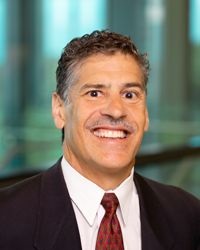
As a Psychologist and Program Director at NCI, Dr. Perna provides leadership and oversees a research portfolio related to physical activity promotion, exercise intervention for cancer survivors, and skin cancer prevention and control. Prior to joining NCI, Dr. Perna was a tenured associate professor at West Virginia University and later served as an associate professor and director of health psychology at Boston University School of Medicine where he maintained an active program of funded research and a clinical health psychology practice. Other research and practice areas involved sport psychology work with professional, Olympic, and recreational athletes.

Dr. Rendle is an Associate Professor with Tenure at the University of Pennsylvania’s Perelman School of Medicine. She is also the Director of the Penn Center for Cancer Care Innovation (PC3I) at Abramson Cancer Center and Director of the Cancer Implementation Research at the Penn Implementation Science Center (PISCE@LDI). Dr. Rendle leads a robust portfolio of NIH-funded research (P50, R01, U01) that integrates diverse quantitative and qualitative methods to improve access, quality, and implementation of cancer care delivery, with a substantial focus in cervical and lung cancer screening and care, in the United States and Botswana. Dr. Rendle earned her PhD in Anthropology and Social Work from the University of Michigan. She also earned her MPH in Epidemiology from the University of California, Berkeley, and completed her postdoctoral training at the National Cancer Institute’s Cancer Prevention Fellowship.

Dr. Rozek is a Professor of Oncology at Georgetown University Medical Center and co-Leader of the Cancer Prevention and Control program for Georgetown-Lombardi Comprehensive Cancer Center. She holds an MS in Epidemiology from the University of Washington School of Public Health and a PhD in Epidemiology, as well as an MA in Statistics, from the University of Michigan, where she was a tenured faculty member in the School of Public Health until her move to Georgetown in August 2022. She is a molecular cancer epidemiologist focused on cancer prevention and control, with expertise in integrating somatic, epidemiologic, and social data from studies of head and neck and colorectal cancers, identifying avenues for prevention and improved survival. She currently leads the NIH/NCI funded Disparities and Cancer Epidemiology (DANCE)- Colorectal Cancer (CRC) project namely “Aggressive CRC subtypes and social disadvantage in a racially diverse cohort” in collaboration with University of Michigan, Karmanos Comprehensive Cancer Center-Wayne State University and Louisiana State University – Health Science Campus, addressing the intersection of race and socioeconomic disadvantage in CRC outcomes. She is the PI of U01-DE033348 “Oral Dysplasias to Carcinomas: Multi-omics Study of Progression” which is a part of the NIDCR Advancing Head and Neck Cancer Early Detection (AHEAD) consortium, and MPI of “Downstream effects of HPV integration on survival/metastasis in orophyarngeal cancer” (R01-CA250214) that included a supplement to apply integrative ‘omics approaches to understanding differences in HPV-associated oropharynx cancer survival in African Americans and non-Hispanic Whites.
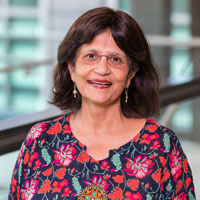
Dr. Srinivasan is a sociologist and the Senior Advisor in the Office of the Director, Division of Cancer Control and Population Sciences (DCCPS), National Cancer Institute (NCI). She currently coordinates activities across DCCPS, NCI, the National Institutes of Health, and with other federal and non-governmental agencies to develop programs and initiatives to improve overall health. Through NCI-funded programs she promotes the building of partnerships between communities and universities to address various health challenges in communities. Previously, she has taught and conducted research at various universities and also has worked as a research director in a community-based health organization. Her scientific portfolio is primarily on social determinants of health and place, including challenges in the utilization and access to health services. In all these projects, the goal is largely to inform health policy at the local, state, and national levels regarding health and health care.
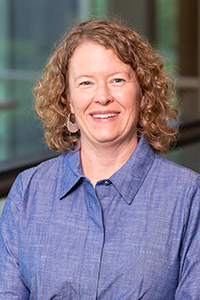
Robin Vanderpool, Dr.P.H., is chief of NCI’s Health Communication and Informatics Research Branch, where she leads a team focused on supporting cancer communication surveillance, patient-centered communication research, and digital health sciences. Prior to joining NCI, Dr. Vanderpool was a professor in the College of Public Health at the University of Kentucky (UK) and associate director for community outreach and engagement at the UK Markey Cancer Center. Dr. Vanderpool earned a DrPH in Health Behavior from UK (2006); a MPH in Public Health Education from Western Kentucky University (1999); and a BS in Psychobiology from Centre College (1997).
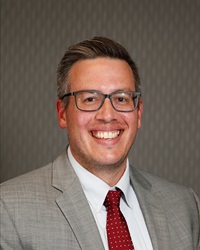
Dr. Ted Wagener is the Founding Director of the Center for Tobacco Research and Co-Leader of the Cancer Control Program at the OSU Comprehensive Cancer Center. He leads an internationally recognized research program in addiction and tobacco regulatory science, with a particular emphasis on understanding the behavioral, pharmacological, and toxicological effects of both cigarette and non-cigarette tobacco products. His work has been continuously funded by the NIH since 2012, and he has served as Principal Investigator or Co-Investigator on over 30 NIH grants, including several large programmatic and cooperative initiatives. He currently serves as PI of the OSU Tobacco Center of Regulatory Science (OSU-TCORS). Deeply committed to training the next generation of scientists, Dr. Wagener has mentored and co-mentored a wide range of students, trainees, and postdoctoral fellows, many of whom have gone on to competitive psychology residencies, fellowships, and academic faculty positions. He has served as primary mentor or sponsor on seven NIH training grants, and as co-mentor on numerous others.
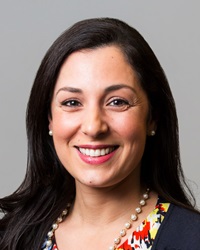
As Acting Director of the Center for Cancer Training and Director of the Cancer Training Branch, Dr. Zahir oversees career development programs supporting the intramural research program fellows and the extramural research fellowships, training, education, and career development programs funded by NCI. Dr. Zahir strives to foster collaborative team science and support cancer education, outreach, and advocacy activities spanning the cancer research continuum. She serves as vice co-chair of the NIH Training Advisory Committee and formerly served as chair of the NCI Early Stage Investigator Activities Committee. From 2013-2021, Dr. Zahir served as Associate Director at the NCI Division of Cancer Biology where she coordinated programs that integrate physical sciences perspectives in cancer research. She joined the NCI in 2009 as a Program Director in the Office of Physical Sciences-Oncology. Dr. Zahir is an elected fellow of the American Institute for Medical and Biological Engineering where she was recognized for her advocacy of training and support for engineering approaches to cancer research. Dr. Zahir's research experience has been in the areas of tissue engineering at the NIH for her postdoctoral fellowship, breast cancer mechanobiology at the University of Pennsylvania Department of Bioengineering for her graduate degree, and plasma physics and radiation biology as an undergraduate at the University of California, Berkeley Department of Nuclear Engineering.